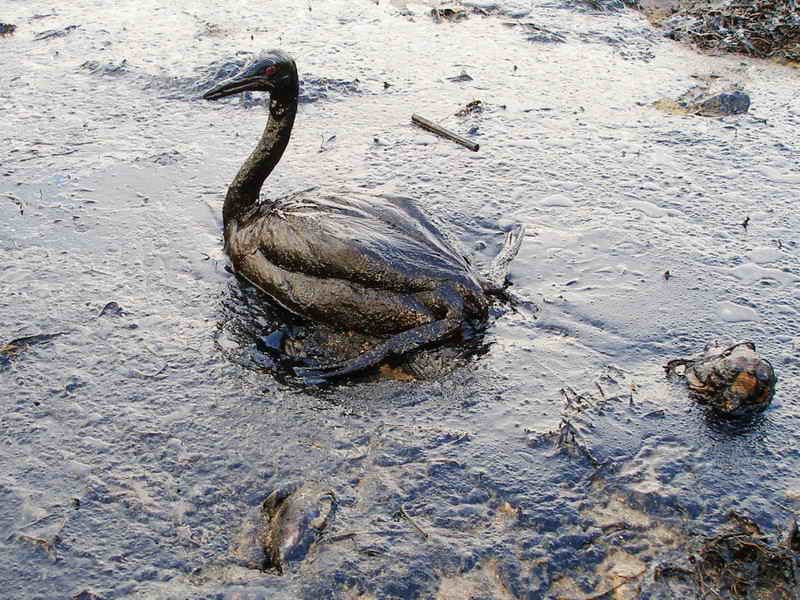Meaning of Oil Spillage
Oil spillage is the release of a liquid petroleum hydrocarbon into the environment, especially marine areas, due to human activity, and is a form of pollution. The term is usually applied to marine oil spills, where oil is released into the ocean or coastal waters, but spills may also occur on land. Oil spills may be due to releases of crude oil from tankers, offshore platforms, drilling rigs and wells, as well as spills of refined petroleum products (such as gasoline, diesel) and their by-products, heavier fuels used by large ships such as bunker fuel, or the spill of any oily refuse or waste oil.

Spilled oil penetrates into the structure of the plumage of birds and the fur of mammals, reducing its insulating ability, and making them more vulnerable to temperature fluctuations and much less buoyant in the water. Cleanup and recovery from an oil spill is difficult and depends upon many factors, including the type of oil spilled, the temperature of the water (affecting evaporation and biodegradation), and the types of shorelines and beaches involved.Spills may take weeks, months or even years to clean up.
Causes of Oil Spillage
- When oil tankers have equipment faults.
- From nature and human activities on land.
- Water Sports.
- Drilling works carried out in sea.
EVALUATION
- What are the causes of energy crises?
- Define oil spill.
- State two causes of oil spillage.
- Define the concept of energy.
- Why do you think that energy is one of the vital factors to societal existence?
- Discuss the impact of energy use on environment.
- Discuss the concept of global warming and the green house effect.
- Enumerate the factors to be considered in cleaning up the water bodies as a result of oil spillage.
Read our disclaimer.
AD: Take Free online baptism course: Preachi.com 